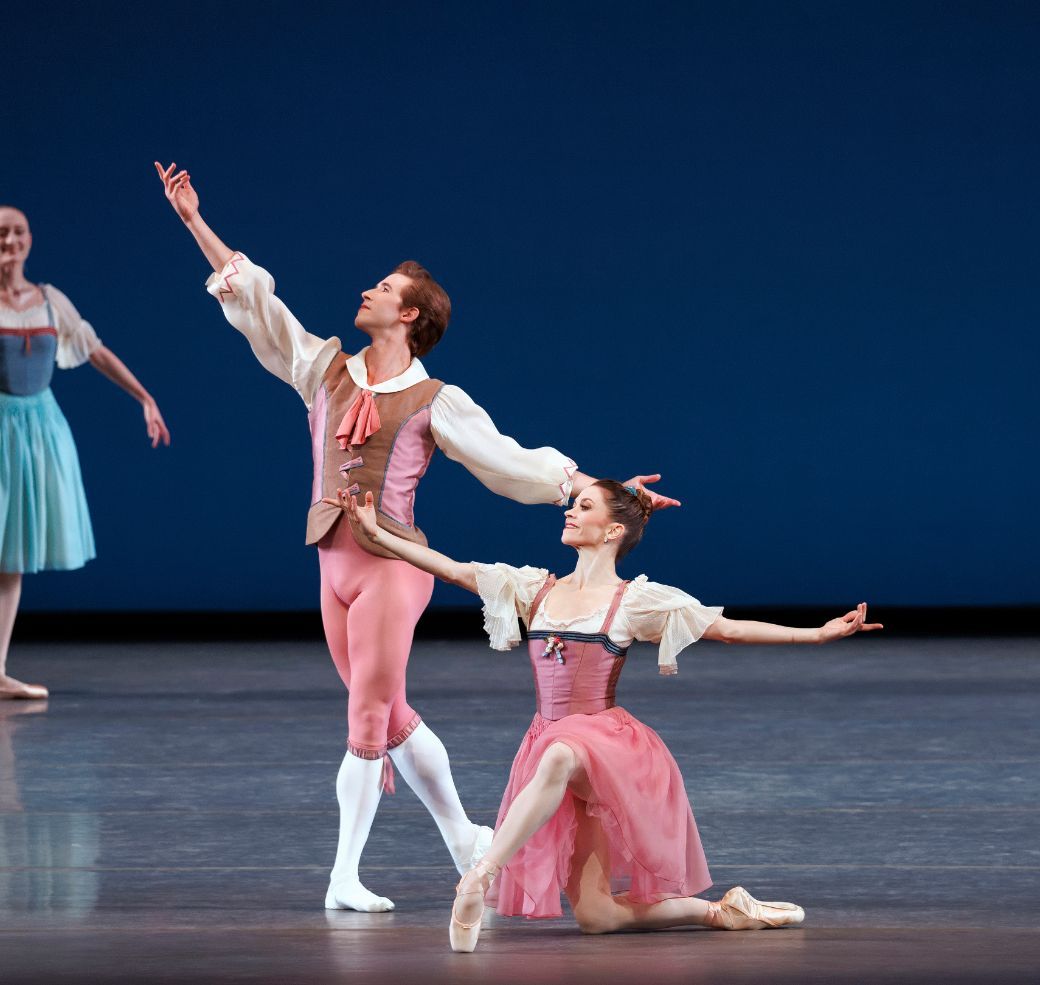New York City Ballet kicked off its fall season with a mixed bill of works by George Balanchine that came across like those sugar cookies you get at the grocery store: sweet, pleasant and forgettable. Every performance was professional, but it was rarely inspired.

The first ballet on the program was a toothless performance of Donizetti Variations. Megan Fairchild (retiring at the end of the spring season) and Joseph Gordon were both excellent at the allegro dancing required for this ballet. Fairchild’s technique is a miracle: her arabesque is a little lower, but she still has the speed and precision. Her pas de chats across the stage were fast and crisp. But she can come across as blandly proficient, and that was the case last night.
Joseph Gordon is her male counterpart in every way: technically amazing, but often lacking personality. There is something “yearbook kind of handsome” about Gordon’s dancing: all surface polish. He missed the humor and bravura of the role. Instead, we got perfectly executed double tours and pirouettes galore. Nice, but this ballet needs something extra.
Ballade is rarely performed, and last night’s performance gave a hint as to why. It was made for Merrill Ashley to help her grow as an artist. Ashley was a very strong technician, and Balanchine wanted her to become softer and more romantic. First he cast her in the Violette Verdy role of Emeralds, then he made Ballade for her.
Noble intentions, right? Unfortunately, it’s as close to Balanchine ever came to filler ballet. Everything about the ballet from the music (by Gabriel Fauré) to the costumes and the choreography is generic. Even the corps choreography was generic, with few of the kaleidoscopic floor patterns that are a Balanchine trademark. Mira Nadon did the best she could with the ballet, but there wasn’t much to work with. She has a beautiful, lush épaulement as always. Peter Walker had a rough night, with several noticeable flubs after turns.
The evening ended with Balanchine’s one-act version of Swan Lake. I have serious Swan Lake fatigue. I saw NYCB’s Martins full-length version four times in the winter, and then saw ABT’s version several times in the summer. The one-act version is an odd bird (pun intended): it’s basically a highlights version of the lakeside act. There’s no emotional resonance as there’s not much of a storyline. The best choreography is the Valse Bluette. But it sells tickets. Last night’s performance was sold all the way to the fifth ring.
Isabella LaFreniere was making her debut as the swan queen. There are delicate swans (Ulyana Lopatkina being the alpha and omega of the delicate swan), and there are strong swans (the recently retired Gillian Murphy was always a strong swan). LaFreniere was a strong swan who eschewed the mournful, bent-arm, eyes-downward mannerisms. Her torso was upright, her neck proud.
Her plusses: her dancing has amplitude and authority. Arabesques were firm. The minuses: she did not shape musical phrases with the steps, but that will come with time. She also needs to work on her swan arms. Right now, they’re still choppy. Most of all, it’s hard to make your debut in such an abbreviated, bloodless version of Swan Lake. Chun Wai Chan was, as always, a fine partner and a sensitive actor. He did have an uncharacteristic blunder in his solo variation.
The corps (full of new apprentices) had characteristic opening night nerves: formations were crooked, arms were all over the place.
So not the best start for the season. Then again, the following night I saw a different all-Balanchine triple bill where every dancer was firing on all cylinders, so the talent in the company is there. This program just wasn’t the best showcase.


